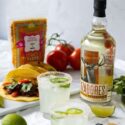Buying pet food for your four-legged friend can be a confusing endeavor for pet owners seeking wholesome and healthy options. Big box grocery and pet stores have literally hundreds of food choices, with labels artfully displaying T-bone steaks, whole fish filets, chicken breasts, and farm-fresh vegetables and eggs.
Sadly, what’s displayed on the packaging is far from the reality. Many brands of pet food, especially with cheaper price tags, can contain rendered meat, ground up animal bones, high amounts of fat and skin, preservatives, chemicals, pesticides and artificial flavours.
So what’s a well-meaning pet owner to do? Here are some easy ways to make the healthiest and eco-friendly food decisions for your pet.
Learn the lingo
· Unfortunately, a higher price point for pet food isn’t always an indicator of quality so knowing how to read your pet’s food label will go a long way.
· Watch out for buzzwords like premium, super-premium and holistic: These terms have no legal definition and do not speak to the nutrition of the product.
· Generally speaking food labeled “natural” does not contain artificial and chemical additives, preservatives and colours.
· Legally, “organic” pet foods may not contain synthetic fertilizers, sewage sludge, irradiation and genetic engineering. They must display a USDA organic label and contain at least 95 percent organic ingredients.
In general, when searching store shelves, look for:
· Minimally processed
· Organic
· Natural: without preservatives, artificial colours and flavours
· Made with hormone and antibiotic-free meat, grass fed and free range proteins
· Vegetables sourced from local farms
· Contains no GMO corn and vegetable crops
· Does not list ‘meat and bone meal’
Keep it simple
Just as we understand that minimally processed, whole foods are better for us than junk food and prepackaged meals, the same is true for our pets.
When you’re seeking out treats and food, avoid items that have a laundry list of ingredients that you can’t pronounce. Keep it simple! Source treats made from simple, wholesome ingredients that are minimally processed. For cats, try dehydrated salmon and shrimp for a snack. For pups, look for jerky created simply by dehydrating a single animal protein, like pork or buffalo.
Seek out items that are free of salt, sugar, additives, preservatives, colouring, and artificial flavourings.
Watch the weight
If you’re choosing a food based on an ingredient on the label, be careful to note how far down it is on the list.
Pet food packaging must display all ingredients in decreasing order by weight, meaning the biggest contributors are the first items. Manufacturers aren’t required to list what the percentage of each ingredient is, so if the first ingredient is meat but the second and third are grains, it could mean there is more grain than animal protein in the food. Similarly, if an ingredient is at the end of the list, it is likely not enough to make a significant difference in the nutrition.
Shop local
You might be surprised to know just how many ethical and healthy pet food creators there are in your community that are sourcing ingredients from local farms. There’s also another bonus: By choosing to support local companies, you’re also lowering the transportation carbon emission associated with your pet’s diet, while supporting a local business.
Ask questions
Whether you choose to feed your pet freeze-dried, kibble, wet food, homemade or raw, there are easy ways to reduce the associated carbon footprint and optimize their health. Ask questions about what’s in your dog’s food, including where it comes from and what it’s made with. And if you’re not satisfied with the answer, buy elsewhere. You vote with your consumer dollar.
Darcy Matheson is a Vancouver-based pet blogger and the author of Greening Your Pet Care, a guide to sustainable pet parenting and lowering the carbon “paw print” of your four-legged friend. Passionate about animal welfare, Darcy is the proud dog mama to Seymour, a naughty terrier mutt, and Murphy Brown, a Norfolk terrier.

















